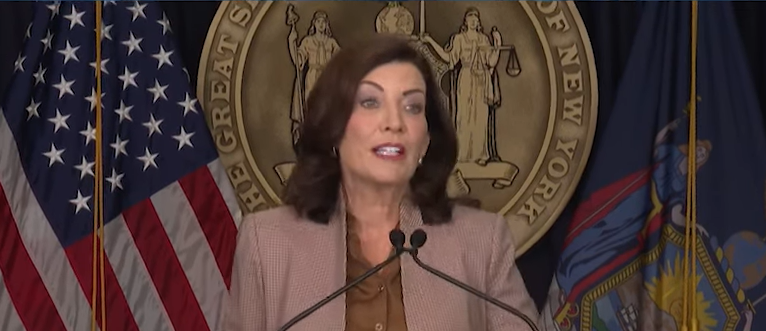The party of “no.”
Fifty years ago, the U.S. Senate passed the version of the Civil Rights Act of 1964 that would be passed by the House and signed into law by President Lyndon B. Johnson. The bill faced a filibuster of 14 hours and 13 minutes by the late Sen. Robert Byrd of West Virginia.
Between the passage by the Senate and debate by the House, three young civil rights workers-Michael Schwerner, Andrew Goodman and James Earl Chaney-disappeared into the night on June 21, 1964, driving in the rural area near Philadelphia, Miss. Schwerner, Goodman and Chaney were later found dead, having been murdered for trying to register African American voters in Mississippi.
On Monday, this week, the AFL-CIO supported a Moral Monday protest in North Carolina revisiting many of the issues America faced in 1964, and meant to be addressed by the Civil Rights Act of 1964. Many things have changed since then. Too many things have not.
The Senate debated the Civil Rights Act for 60 working days, including Saturday sessions. Rarely today does Congress meet to carefully craft legislation lifting the lives of people. An important purpose of the act was to ensure economic freedoms for African Americans, especially the right to hold a job. In the 1960s, major American newspaper want ads openly advertised for segregated job openings. Those cold hard lines denied access to earning a living.
Today, Senate Republicans filibuster votes to raise the minimum wage, and House Republicans refuse to debate it. That cold hard line leaves more than 2.6 million Americans working full time, year round but living in poverty, and America’s poor families with workers are unable to earn enough to get out of poverty.
North Carolina is a state where a child born into poverty has less than a 6 percent chance of moving up to the top 20 percent of the income pile. In the Wilson area, a poor child has only a 3.9 percent chance of moving up above middle. This is not because of single parent households, individual irresponsibility or the water people in North Carolina drink. The problem is that North Carolina has policies that trap people who fall down into poverty.
Lose a job? In North Carolina, the average unemployment benefit will replace only 35 percent of your pay, ranking 30th out of 53 unemployment systems in the United States and its territories, and you only have a 35 percent chance you will get any benefit at all, ranking 51st out of 53. If you are a single mother, then your combined Supplemental Nutrition Assistance Program and Temporary Assistance to Needy Families benefit will just get you to the level of extreme poverty (50 percent of the poverty line), ranking 43rd out of 51 (the 50 states and the District of Columbia).
Hunt for a job, and you will be in one of the states where the minimum wage remains at the federal level of $7.25 an hour, making you a minority among American workers, since most now live in states where democracy is working to lift the minimum wage to more decent levels. Or, try landing a job that has paid sick days, health insurance and retirement benefits-meaning a union job; the share of jobs protected by a collective bargaining agreement in North Carolina stands at less than 4.8 percent, ranking 48th out of the 51.
At the August 1963 March for Jobs and Freedom, labor and civil rights leader A. Philip Randolph famously remarked: “Yes, we want all public accommodations open to all citizens, but those accommodations will mean little to those who cannot afford to use them.”
North Carolina and its radical Republican governor and legislature are hastily passing laws not to put government on the side of the people, but to put people at the servitude of the 1 percent. They have been limiting access to unemployment insurance, standing in the way of accepting federal support to extend access to health insurance to the working poor and in the way of lifting the minimum wage. And, to make sure that no one objects to their hijacking of democracy, they are taking actions to limit voting and to deny access to the state capitol for people to exercise their 1st Amendment “right of the people peaceably to assemble, and to petition the Government for a redress of grievances.”
So, while the Civil Rights Act of 1964 sought the end of race-based laws, the state of North Carolina is trapping people into poverty.







